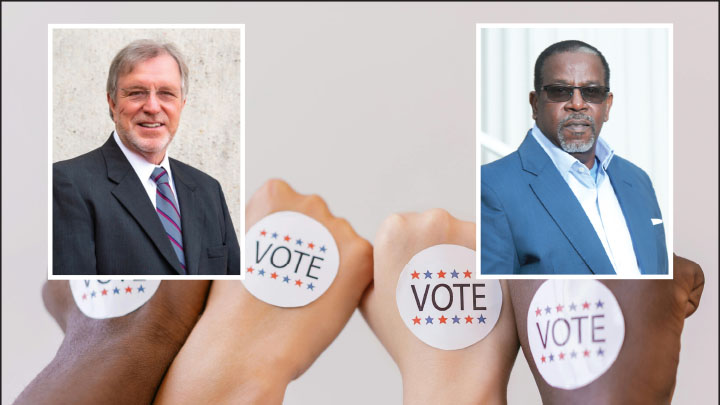Priest happy with pope’s name choice
Published 7:00 pm Sunday, March 17, 2013
The focus of Pope Francis’ papacy began to emerge Saturday as he offered some intimate insights into the conclave that elected him pontiff, describing how he was immediately inspired to name himself after St. Francis of Assisi because he wants to see a church that is “for the poor.”
Brookhaven’s St. Francis of Assisi Catholic Church priest, Fr. Alphonse Arulanandu, said this new pope seems “down to earth” and focused on “fulfilling the needs the people.”
Arulanandu was pleased with Francis’ focus on the poor, which is the reason he believes the pope chose Francis’ name.
“St. Francis of Assisi was known for serving the poor. I think that is why he has chosen his name,” said Arulanandu.
Pope Francis’ comments Saturday provided further evidence that this first Latin American papacy would be one that looks beyond the confines of the church itself to the most disadvantaged, named for a 13th-century friar who renounced a wealthy, dissolute lifestyle to embrace a life of poverty and simplicity and go out in the countryside to preach a message of joy and peace.
Arulanandu seemed pleased with the church’s choice of an Argentinian as the first pope selected outside of Europe in the modern age.
“The church is not only in Europe, but the entire world,” said Arulanandu.
The new pope described how during the conclave he was comforted by his friend, Brazilian Cardinal Claudio Hummes, as the votes were going his way and it seemed “a bit dangerous” that he would reach the two-thirds necessary to be elected.
When the threshold was reached, applause erupted in the frescoed Sistine Chapel.
“He (Hummes) hugged me. He kissed me. He said, ‘Don’t forget about the poor!'” Francis recalled.
“And those words came to me: The poor. The poor. Then right away, thinking of the poor, I thought of Francis of Assisi. Then I thought of all the wars as the votes were being counted, until the end. Francis is also the man of peace. That is how the name came into my heart: Francis of Assisi.”
The pope said some have wondered whether his name was a reference to other Franciscan figures, including St. Frances de Sales or even the co-founder of the pope’s own Jesuit order, Francis Xavier. But he said the inspiration was Francis of Assisi.
Sitting in the vast Vatican auditorium, Francis continued: “For me, he is the man of poverty, the man of peace, the man who loves and protects creation. These days we don’t have a very good relationship with creation, do we?” he said. “He is the man who gives us this spirit of peace, the poor man.”
“Oh how I would like a church which is poor and for the poor!” Francis said, sighing.
He then joked that some other cardinals suggested other names: Hadrian VI, after a great church reformer – a reference to the need for the pope to clean up the Vatican’s messy bureaucracy. Someone else suggested Clement XV, to get even with Clement XIV, who suppressed the Jesuit order in 1773.
The pope’s admiration for Francis’ simplicity is evident in his own lifestyle: the former Cardinal Jorge Mario Bergoglio would take the bus to work, lived in a Spartan apartment where he would turn the heat off on weekends and cook his own meals.
In one of his first acts as pope, Francis phoned the Vatican ambassador in Buenos Aires and told him to put out the word that he didn’t want ordinary Argentines flocking to Rome for his installation Mass, urging them to use the money instead for charity.
Bergoglio never favored liberation theology, the Latin American-inspired view that Jesus’ teachings imbue followers with a duty to fight for social and economic justice, because of its alliances with armed leftist guerrilla movements in the 1970s.
But as a priest and later archbishop, he saw to it that every slum in Buenos Aires had a chapel and fostered many outreach programs, supporting former prostitutes and drug addicts and washing the feet of rehab patients. When the economy collapsed in 2001, and Argentines lost faith in their politicians, he denounced capitalist excesses and corruption from the pulpit.
His addresses and homilies often circle back to the need for the church to rivet its attention on issues of economic failings, including the growing divides between the comfortable and needy, and the pressures of Western-style capitalism.
“Expect a few changes from the church,” said Arulanandu.
He believes Francis will promote more evangelization.
“We are to realize our institution’s focus by going out.”





